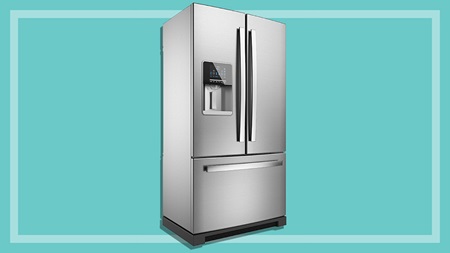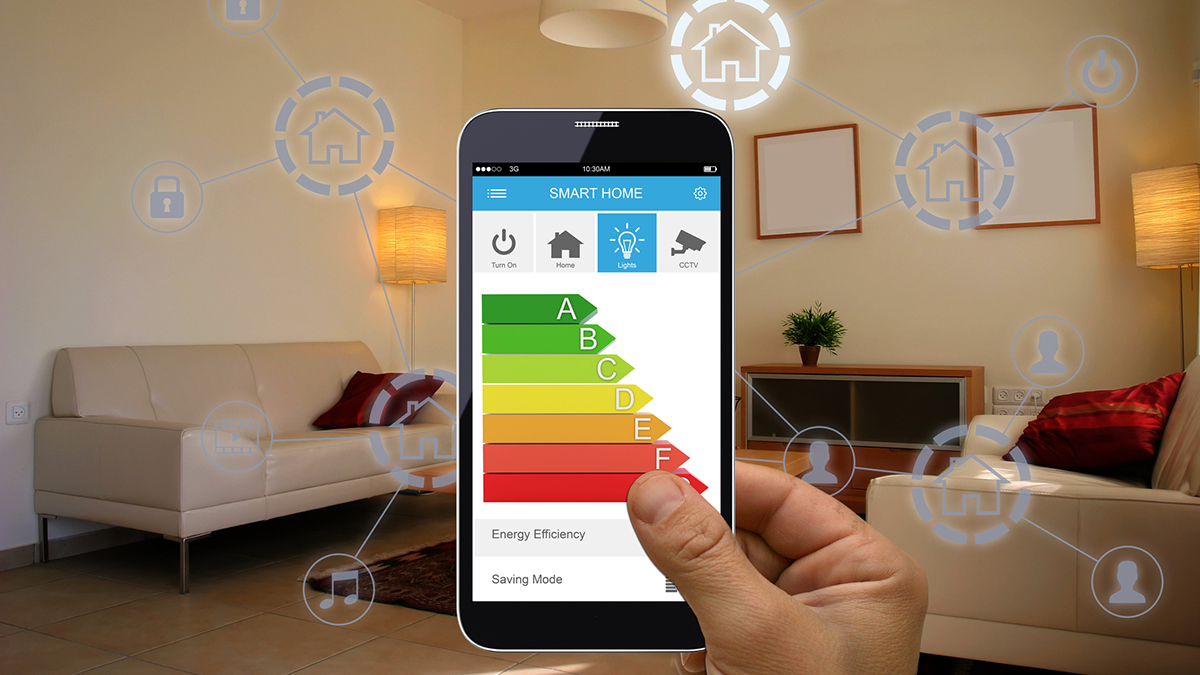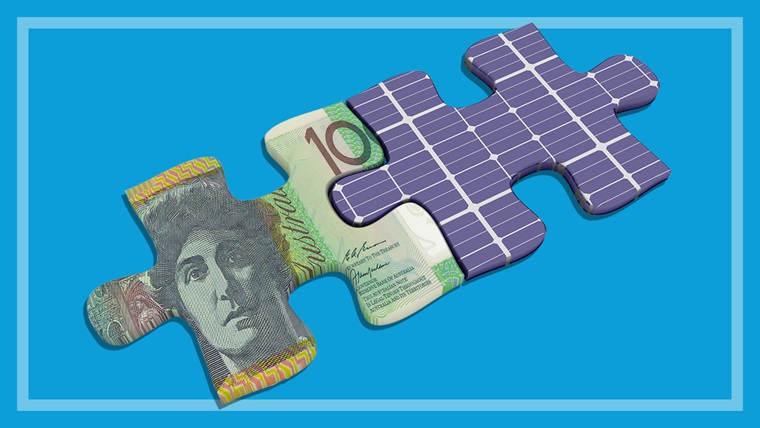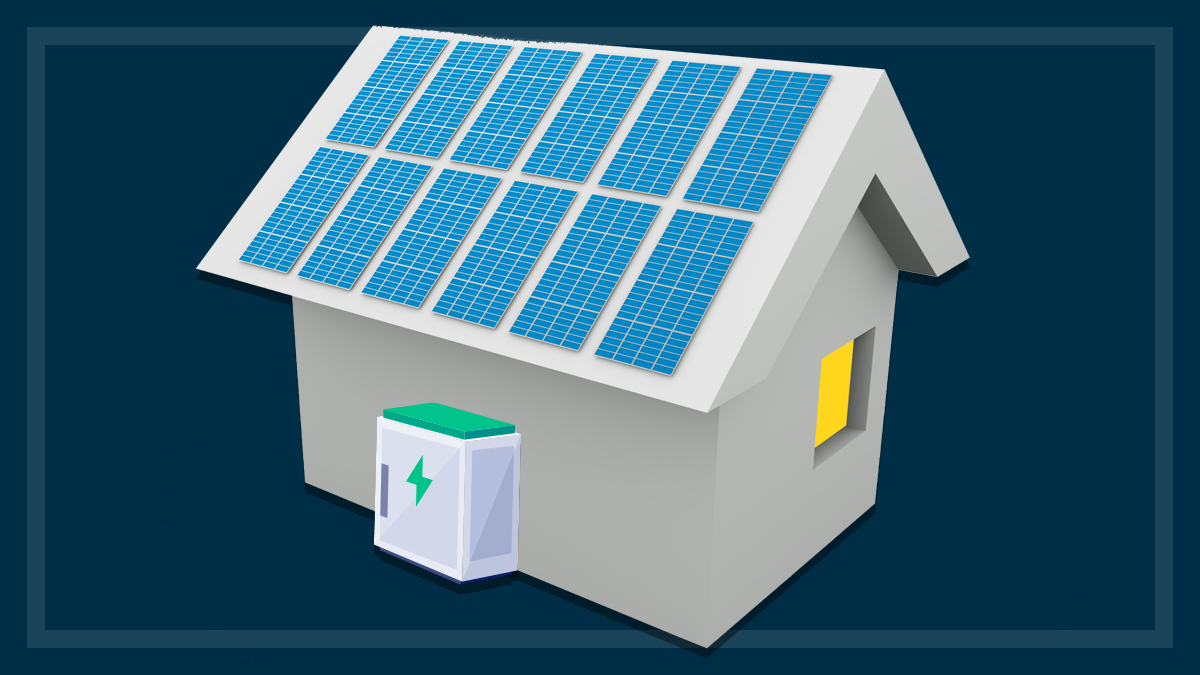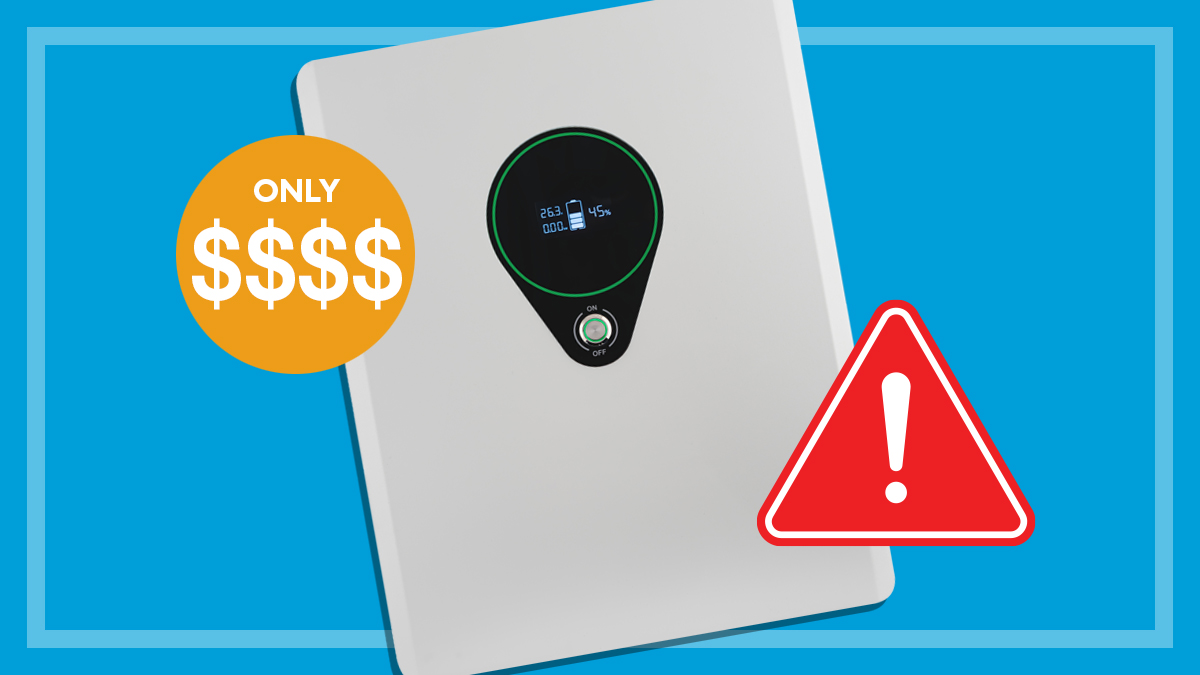Get our independent lab tests, expert reviews and honest advice.
How to cook more sustainably
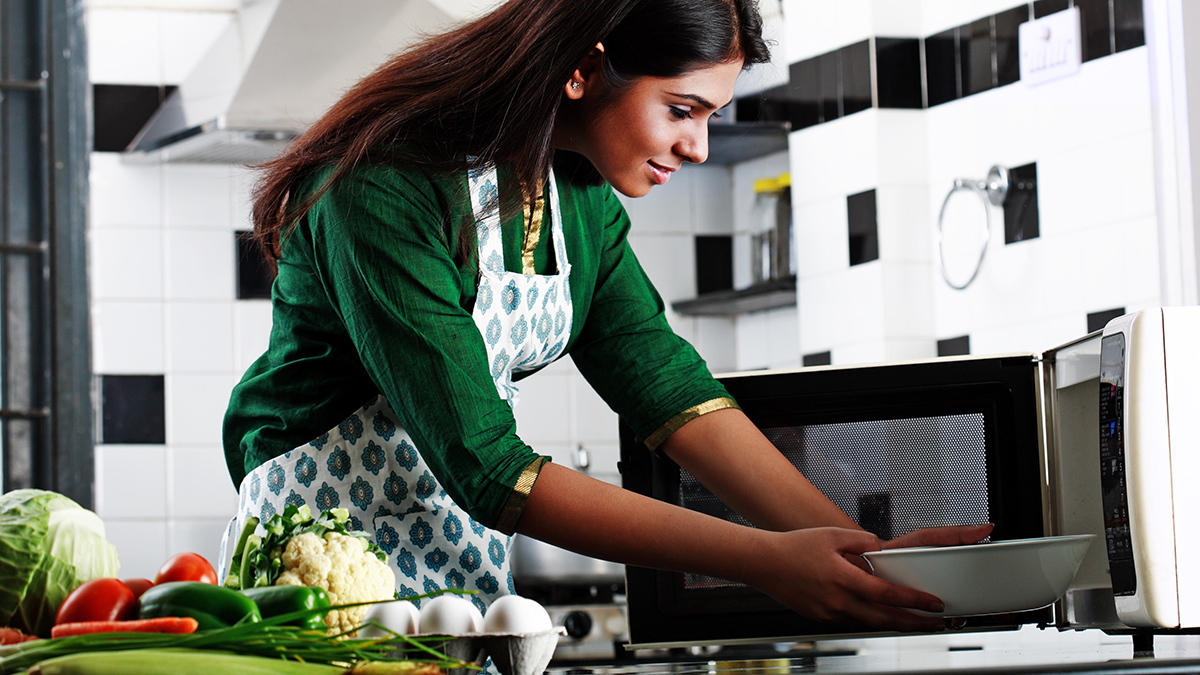
When we think about our carbon footprint, we tend to think about petrol and electricity, but the way we eat plays a big role in our impact on the planet.
If you’re trying to live more sustainably, making a few changes to the way you buy, cook, eat and dispose of waste are a great way to make a difference. Sustainability begins at home!
The great news is that many of these changes aren’t just good for the planet – they’re good for your wallet and your health, too.
Kitchen appliances
Heaters and air conditioners might be the biggest energy-guzzlers in our households, but kitchen appliances contribute their fair share to your energy use. Fridges and freezers account for about eight percent of an average home’s power consumption, while cooking is about five percent.
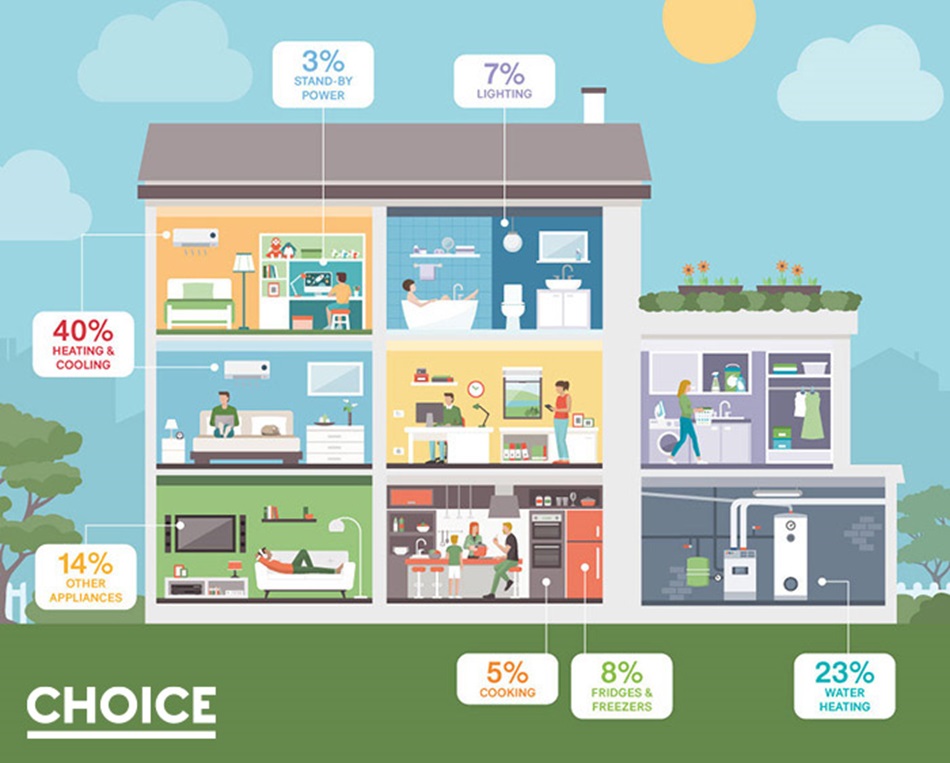
So that’s 13% of your power bill (and associated carbon emissions) coming from the kitchen.
Here are some tips for using your fridge more sustainably:
- Shop smart: buy the most energy-efficient appliances you can so they’re using less energy to begin with. Our expert fridge reviews include detailed information on energy use and running costs.
- Dial it down: run your fridge at 3°C and your freezer at -18°C. This is the sweet spot between energy efficiency and food safety.
- Size it right: a larger fridge uses more energy but smaller fridges can be less efficient. Ask yourself if your two-person household really needs a huge French-door fridge. Get the balance right and buy the most suitably sized fridge for your household.
- Keep it shut: limit how often you open the door by planning ahead and grabbing a few things in one go, instead of one thing at a time.
- Keep it full: a full fridge is an efficient fridge. Keeping your fridge well stocked (but not over-full) means your compressor won’t cycle as often, which will reduce energy use.
- Rethink the second fridge: If you have a backup fridge in the garage, chances are it’s an older model that’s not very efficient – and it’s probably working extra hard because garages aren’t well insulated. If you can’t bear to part with yours, consider switching it on only when you’re entertaining – it probably doesn’t need to be on year-round.
Air conditioners
Air conditioners can really chew through the power, so when it’s hot outside, try to minimise how much heat you’re bringing to the kitchen so you’re not putting extra strain on the air con.
- Take it outside: cooking on the BBQ means you won’t heat up the kitchen.
- Keep it small: rather than heating up a big oven, use smaller appliances such as air fryers and microwaves that don’t need to be preheated and won’t raise the temperature indoors.
- Be nocturnal: run the dishwasher at night when it’s cooler instead of during the day.
- Cool it: opt for cold meals such as salads, antipasto platters, rice paper rolls and the like so you don’t need to heat up the kitchen. As a bonus, salad ingredients are more likely to be in season in summer!
- Double it: if you do need to cook something in the oven, make a double batch or a few extra dishes at the same time so you’ll only need to heat the house up once.
These measures will keep your house cooler, but many of them will also reduce the amount of energy you’re using: smaller appliances generally use less power than larger ones, so opting for the air fryer or microwave rather than the oven will cut your energy consumption (and your bills).
Get to know how your microwave works: you’d be surprised by just how many different things you can cook in it. And you can always start cooking food in the microwave then finish it in the oven, reducing how long you’ll need to run the oven for.
Slow cookers are another great way to cook in bulk. They use very little energy, despite cooking for longer periods of time
Slow cookers are another great way to cook in bulk. They use very little energy, despite cooking for longer periods of time.
Plus, if you make a surplus and freeze it, you’ll have extra meals on hand so you’ll be less inclined to buy takeaway or home delivery – eating at home means one fewer car trip for you or the delivery driver.
Gas cooktops
Natural gas cooktops are popular with professional chefs and home cooks alike, with nearly two in five Australian households using natural gas for stovetop cooking.
While gas has long been considered an environmentally cleaner alternative to wood and coal, it’s increasingly coming under scrutiny for its environmental impact. Nt only is it still a fossil fuel that creates greenhouse gases, but the way it’s extracted and processed is associated with water contamination and air pollution. It’s also been linked to health detriments including asthma and respiratory conditions.
If you have solar or pay for green energy through your electricity provider, cooking with electricity rather than gas can help reduce your environmental impact.
Electric cooking and heating technology are becoming more and more efficient – think induction cooktops – so electric appliances are becoming better over time.
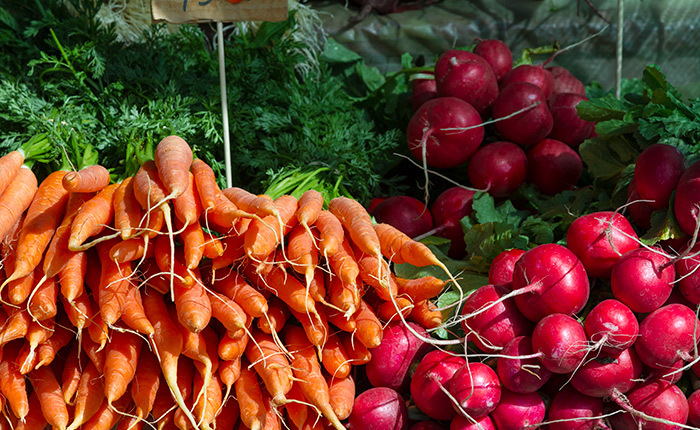
Eating more sustainably
Food production accounts for more than a quarter (26%) of global greenhouse gas emissions, so your eating habits can have a big environmental impact. But the sunnier flipside is that making some changes to how you eat can also reduce your carbon footprint.
Adjusting how we shop and eat can seem challenging at first. After all, food is a source of comfort as well as nutrition. But making a few changes can make a difference.
Of course, not all these changes are suitable for everyone – finances, disability, access and circumstance can mean that some foods or habits simply aren’t feasible. Even choosing a few things you think are doable can have an impact, though, so just try to do what you can.
Eat fresh, in season, local food
You’ve probably heard this one before, but it does bear repeating. Choosing food with fewer air miles will reduce your carbon footprint. And the less time and distance your food has to travel, the fresher it’ll be, so it’ll taste better too.
Although most foods go through some form of processing (even canned lentils are technically ‘processed’ food), the further removed a food gets from its original state, the less nutritious it tends to be. And each food processing step uses energy and creates waste, so the more processed a food is, the bigger its environmental impact may be. So eating fresh, whole foods isn’t just good for your health – it’s also better for the environment.
Although most foods go through some form of processing, the further removed a food gets from its original state, the less nutritious it tends to be
Eating in this way doesn’t have to be more expensive, as some people claim. You’ll often pay less for produce that’s in season and local – just think about the extra costs involved in transporting fruit and vegetables from other countries.
Don’t overlook frozen produce, either. Vegetables that are frozen as soon as they’re picked may retain their nutritional value more than veggies that have been in cold storage for weeks.
You can make the most of seasonal produce that’s in abundance by pickling, canning and preserving. It’s the best way to enjoy fruits and vegetables out of season.
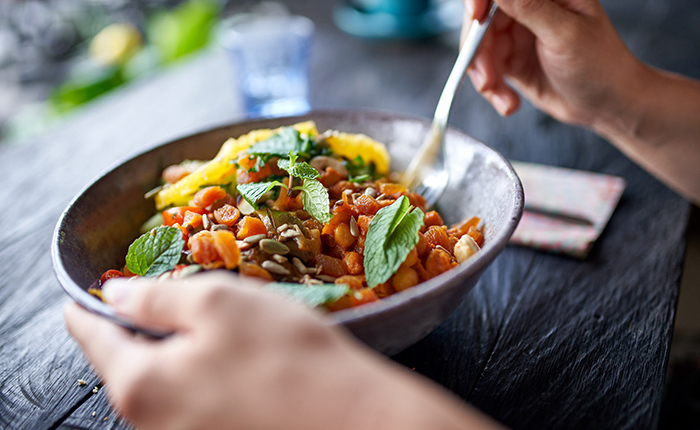
Move away from meat
Meat-lovers, you’re not going to like hearing this – but cutting down on meat is one of the biggest ways to reduce your environmental impact.
While eating locally and seasonally is important, what you eat has the biggest influence on your carbon footprint. Just one kilogram of beef produces 60kg of greenhouse gas emissions, and meat and dairy alone contribute to about 14.5% of global greenhouse gas emissions.
Having at least one meat-free day a week is great, but you can switch meat-heavy dishes for veggie-heavy ones on other days to reduce your meat consumption and up your vegetable intake. Considering a recent health study showed that nine percent of Australian adults aren’t eating the recommended daily servings of fruit and veg, this has double benefits!
Bulk up with veg
Parents have been hiding vegetables in their kids’ food for years – you can do the same with your meals! Try sneaking grated carrot, zucchini and mushrooms into a spag bol so you don’t need to use as much meat, or thicken up a curry or stew with some pulses to pad it out and stretch the meat you do use further.
If you fill up your plate with delicious, colourful, vegetable-based foods, you probably won’t notice if there’s less – or even no – meat on there.
Use everything
Food waste is a big problem in Australia – we waste 7.6 million tonnes of food a year. What’s worse is that 70% of this wasted food is perfectly edible. And as food decomposes in landfill, it creates methane, a potent greenhouse gas that contributes to climate change.
Storing food properly can extend its life (see below), but getting the most out of your ingredients can minimise food waste, too.
Here are a few ideas:
- If you’re making roast chicken, save the frame to make chicken stock.
- Turn potato peelings into chips.
- Finely slice broccoli stems and use them in stir fries or as a side dish.
- Put overripe bananas in the freezer to use in smoothies.
- Blitz up limp herbs with olive oil, nuts and garlic to make a delicious pesto.
- Turn bread crusts into breadcrumbs.
And don’t forget your leftovers! Try to make a habit of eating leftover dinners for lunch the next day. Or have a few leftover dinners each week to use them up before they’re past their prime.
The NSW Government’s Love Food Hate Waste initiative has some great suggestions for minimising food waste at home if you need some more inspiration.
Other ways to minimise food waste
- Store it correctly: don’t just shove everything in the crisper and hope for the best. We explain how to keep your fruit and vegetables fresh, but remember that some foods don’t need to be refrigerated at all.
- Harness the power of your kitchen appliances to help fight waste. Your food processor, blender, slow cooker and oven can turn food that’s past its prime into delicious meals. If you have an abundance of herbs, fruits or vegetables, you can extend their life by dehydrating them. You don’t necessarily need to buy a standalone dehydrator – your oven and microwave will work well too.
- Compost what you can’t eat – or feed some worms! Here are some tips, plus 10 things you didn’t know you could compost.
Try to cut out single-use plastic
Although it’s hard to break the habit of using cling film, plastic bags and paper towels in the kitchen, there are plenty of products on the market to help – and they’re getting more affordable.
Here are some ways to reduce single-use plastic products in your kitchen:
- Use plant-based food wrap instead of plastic wrap. We reveal the best and worst eco-friendly cling wraps.
- Instead of using disposable wrap, try silicone food covers, beeswax wraps or glass containers. Or go old-school and just pop a plate on top of a bowl!
- Take your own containers to the deli instead of using their plastic containers. (You may need to check with your local supermarket, as some won’t accept containers due to hygiene concerns, particularly in light of the COVID-19 pandemic.)
- Buy your produce loose, rather than in plastic bags or packaging. When we compared prices in 2018, we found that loose produce is cheaper 53% of the time, so you’ll be saving money too. If you need bags, bring your own fabric bags instead of using the plastic bags in the produce section.
- If you’re trying to cut out single-use paper towels made from virgin pulp, unfortunately many of the worst performers in our paper towels test were eco-friendly products. Many are also expensive. So you’re better off buying reusable cloths, or repurposing old clothing or material you have around the house into rags you can wash and reuse.
- If you can’t live without paper towels for some kitchen jobs, there are a few eco-friendly paper towel products that do perform well, including a number made from fast-growing bamboo. Viva Eco 100% Bamboo Fibre scored 74% in our tests, and iCare recycled paper towels all scored 77% and are recommended by our experts. They’re also among the cheapest products we tested – that’s a win for the environment and your budget!
- If you’re brave, you can even do away with plastic bin liners! Honestly, if you’re composting and/or not producing much food waste, then your bin won’t be very gunky, so it’s not as gross as it sounds.

